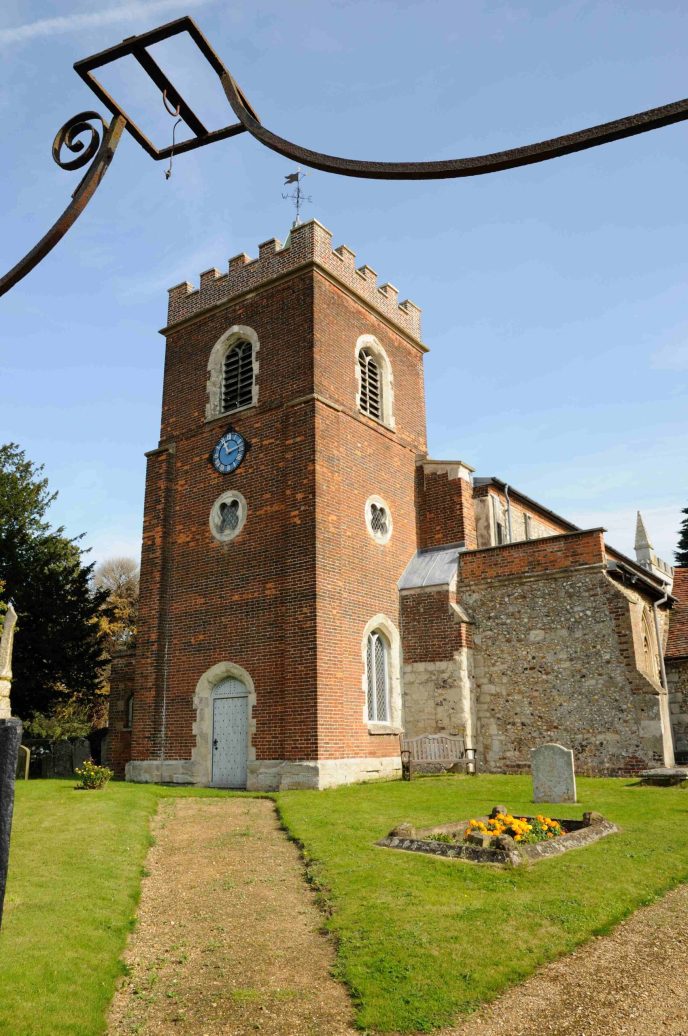

One of the places featured in the book Hertfordshire A Fascinating County is Great Offley.
Great Offley is a village on the edge of the Chilterns which which owes its name to King Offa of Mercia. According to Matthew Paris King Offa died here in 796.
Great Offley has been held by a number of distinguished people and family’s over the centuries.
Isabella St Leger married Sir Thomas De Hoo, of Luton Hoo. After being held by the Farmer family Great Offley was purchased by Sir John Spencer of Althorp. Perhaps the most well known descendant today of the Spencer family is Lady Diana, Princess of Wales.
Sir John Spencer’s 4th son, Richard, inherited Offley and although he had been living here for a number of years he decided to build a new manor house, the first Offley Place, which was completed in 1600.
Sir Henry Penrice later became the owner. He was a Judge of the Admiralty Courts. Sir Henry’s daughter, Anna Maria Penrice, married Sir Thomas Salusbury who became a Judge at the Admiralty.
Anna Maria gave milk and broth twice a week to ordinary people who brought pitchers to the big house, weekly an ox was killed and an enormous pie made, and she also clothed seventeen poor girls and seventeen poor boys who always went to church on Sundays in the uniforms. After the death of Anna Maria, Dame Sarah Salusbury married Sir Thomas and eventually became the owner of Offley Park. Dame Sarah was also a benefactor to the poor of the village making provision for a school, leaving money in her will for the purpose.
Dame Sarah did not have children and made a condition of her will that the man who was to inherit her estate should change his name to that of her mother’s maiden name of Burroughs. This condition of her will was met and a distant cousin of Sir Thomas Salusbury, the Rev Lynch Salusbury, duly became Lynch Burroughs.
By 1806 Lynch was in control of Offley Place. During his time here he diverted the main road through the village, established a new workhouse, and had four men transported to Australia for stealing his rabbit traps.
The Church of St Mary Magdalene, of which Lynch Salusbury was the Vicar, dates to the thirteenth century, although an earlier building is recorded as having been standing here in the twelfth century.
St Mary’s has a large churchyard which includes the Pilkington Grave which remembers Hubert Carlisle Pilkington who served in the Great War of 1914-1918, Mark Leslie Pilkington MC who was a Captain in the Life Guards and served in Palestine, Abyssinia, Transjordan, and with the Long Range Desert Group in North Africa where he died in 1942, and Charles Leslie Pilkington a Flying Officer with the Royal Air Force Volunteer Reserve who was killed with his crew in 1942 returning from a night operation over Essen, Germany.
A large lychgate at the entrance to the churchyard was erected in 1917 in memory of Francis and Katherine Henrietta Gosling. In 1951 Mrs R.H. Pilkington added a lantern to the gateway which directed light on to the war memorial which stands on the opposite side of the road. The lantern was erected in memory of her two sons who died during World War II and her husband.
Offley Place stands in the middle of the village close to the church. The house was altered and rebuilt in the nineteenth century with the front being rebuilt in Gothic style.
Hester Salusbury, the Mrs Thrale, intimate friend of Dr Johnson, stayed here. She wrote a poem about a great ash tree in Offley Park which had fallen.
In 1929 Colonel Acland, an executive of W.H.Smith, the booksellers, purchased Offley Place and he made further alterations including demolishing its tower.
The Froebel Institute of Education purchased it for use as a teacher training college in 1943. It was subsequently acquired by Hertfordshire County Council and continued to serve as an educational training establishment.
Today Offley Place is privately owned again. Restored to its former glory it is a Country House Hotel which says it is “Where the past & present come together in perfect harmony”. Facilities include its Spencer restaurant and Salusbury lounge.